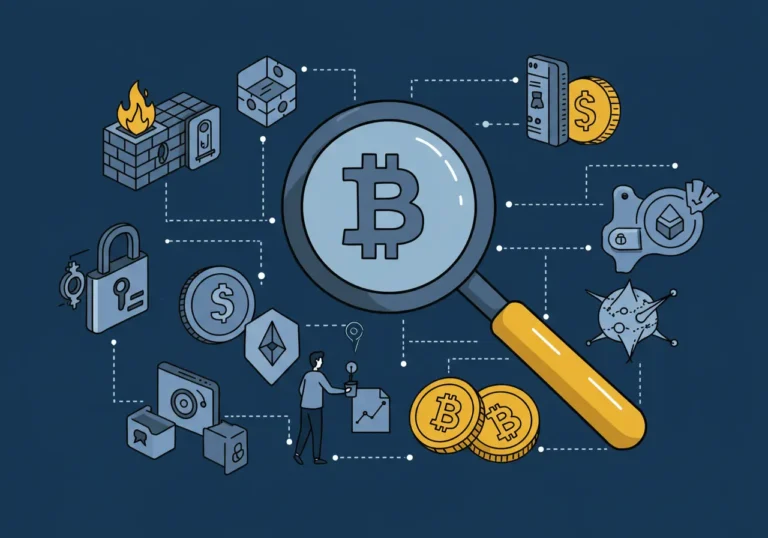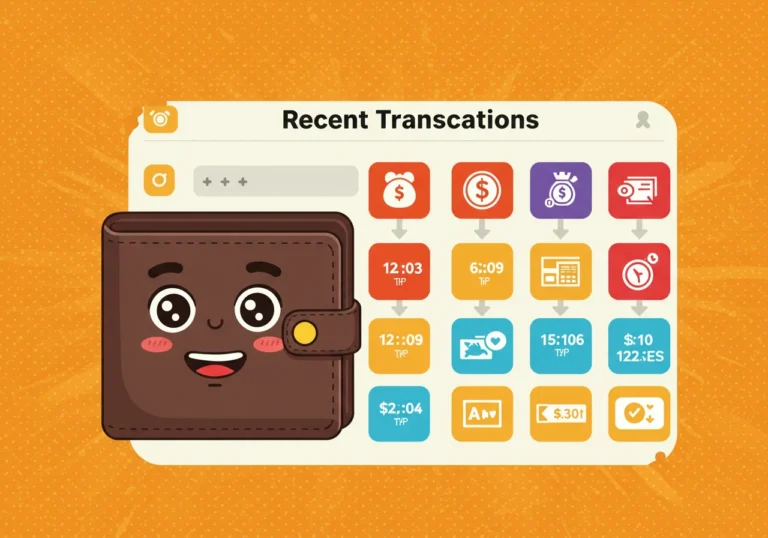Social Engineering Attacks in Crypto: How to Spot and Prevent Them
Crypto can feel wild, right? New words, fast moves, that nagging “what if I miss out?” feeling. Scammers love that confusion. They study how people react. What scares you? What gets you excited? Then they craft lies that feel… almost real. That urgent email? That friendly “support agent” sliding into your DMs? It’s all carefully planned psychological manipulation. They’re acting, and you’re the audience they want to fool.

So What Exactly is This Sneaky Stuff? (Mind Games 101)
Imagine this: Instead of picking a lock, the thief sweet-talks the shop owner into handing over the keys. That’s social engineering in crypto. Scammers use clever talk, pressure, and fake stories (manipulation tactics) to trick you into giving up access to your coins or info. They don’t need a computer science degree. They need a good story and the nerve to tell it.
Their goal? Simple. Steal your cryptocurrency. How? By getting you to:
- Click a bad link (oops!).
- Download something nasty disguised as “helpful software”.
- Tell them your secret recovery phrase (biggest mistake!).
- Send crypto straight to their wallet address.
- Give them your exchange login details.
- Approve a transaction you shouldn’t.
They use psychological manipulation techniques – playing on your fear of losing money, your excitement about a “sure thing,” a fake sense of urgency, or even your trust in a “friend” – to make you act now, without thinking.
The Con Artist’s Toolbox: Common Tricks to Watch For
Let’s get real about how these scammers operate. Knowing their moves is your best defense. Here’s what’s out there:
- The Classic Fake-Out: Phishing (But Made for Crypto)
- What happens: You get a message. Email, text, DM. Looks exactly like it’s from Coinbase, Binance, MetaMask, or some hot new DeFi app you use. It screams panic or opportunity: “SECURITY ALERT! Account Lock Imminent!” or “CLAIM YOUR FREE TOKENS NOW!” or “Verify Identity Immediately!”
- The Mind Game: They use deceptive tactics. Perfect logos. Copied email designs. Real-sounding names. They hammer fear (losing access! losing money!) or greed (free coins! exclusive deal!).
- The Trap: A link. It takes you to a website that’s a perfect copy of the real login page. You type your password… gone. Or it asks for your seed phrase to “verify” (Never. Ever. Do this.). Phishing attacks targeting cryptocurrency users are everywhere and always changing.
- Real life: Email subject: “ACTION NEEDED: Suspicious Login on Your Coinbase! Secure Account NOW!” Link goes to
c0inbase-secure.net(see the zero instead of ‘o’? Sneaky!).
- The “Friendly Helper”: Impersonation Scams
- What happens: Someone pops up pretending to be official support, a famous crypto personality, a project leader, or even someone you know. Common on Twitter (X), Discord, Telegram, comment sections.
- The Mind Game: They exploit trust. You think you’re talking to someone legit who wants to help. Maybe you posted a question, and “support” magically DMs you. Or “Vitalik Buterin” DMs about a “secret Ethereum upgrade” (yep, happens!).
- The Trap: They offer “help” fixing a problem (often one they caused!), ask you to “validate” your wallet (needs your seed phrase – red flag!), tell you to send crypto to “unlock rewards,” or send you to a phishing site. Impersonation scams targeting crypto investors are crazy common online.
- Real life: You comment: “Stuck setting up my Ledger.” Minutes later: “Ledger Support” DMs: “Hi! We can assist. Visit this link [malicious] & connect your device.” Connecting could drain it.
- The “Free Money” Mirage: Fake Giveaways & “Guaranteed” Wins
- What happens: Ads, posts, DMs screaming insane profits or free crypto. “Send 0.1 BTC, Get 1 BTC Back!” or “Join our VIP group for 500% daily returns!” Pure fantasy.
- The Mind Game: Pure greed and FOMO (Fear Of Missing Out). They dangle impossible wealth. Fake success stories. Fake deadlines (“Only 5 spots left!”).
- The Trap: You send crypto to their address to “join” or “claim your prize.” Or you pay a fee for their “secret strategy” (and get ghosted). Sometimes, they ask for your seed phrase “to deposit the free coins.” Uses social engineering tactics to compromise crypto exchanges or wallets by tricking you into sending funds away.
- Real life: Hacked YouTube stream shows “Elon Musk” live: “Bitcoin Double Event! Send 0.5 ETH, get 1 ETH back instantly!” Sadly, people fall for it.
- The Fake Alarm: Malware & Bogus Updates
- What happens: Pop-ups, messages, fake sites screaming your computer is infected or your wallet has a “CRITICAL VULNERABILITY! UPDATE NOW!”
- The Mind Game: Plays on fear for your device and your crypto. Creates fake urgency to make you click without thinking.
- The Trap: Clicking downloads nasty software (malware). This can record your keystrokes (passwords! seed phrases!), steal files, or hijack your wallet. Classic technique for manipulating crypto wallet users.
- Real life: Browsing a crypto forum, a scary pop-up: “VIRUS DETECTED TARGETING EXODUS WALLET! SCAN NOW!” Clicking “Scan” installs the malware.
- The Complicated Con: Messing with DeFi & Smart Contracts
- What happens: Scammers target the confusing world of DeFi (lending, swapping tokens). Fake platforms. Bad advice on complex steps like token approvals.
- The Mind Game: Exploits confusion. You want to join the action but it’s complex. They offer “simple guides” or “live help” that steers you wrong.
- The Trap: You connect your wallet to a scam DeFi site and sign a transaction giving them permission to take all of a specific token you own. Or you follow bad instructions sending funds to a scammer’s address thinking it’s a legit pool. These are social engineering strategies to exploit decentralized finance platforms by tricking you during tricky steps.
- Real life: In a Telegram group, a “DeFi expert” talks a newbie into giving “unlimited approval” for a token on a shady site, letting the scammer drain it later.
Fight Back: How to Spot These Scams Before They Get You

Knowing the tricks is step one. Step two is building your shield. It’s not about tech wizardry. It’s about sharpening your instincts and sticking to good habits. Here’s your game plan:
- Stop. Breathe. Think. This is your superpower. Social engineering needs you to react fast, usually scared or excited. Feel that rush? That pressure? Stop. That’s your gut feeling yelling “Danger!” Ask: “Is this normal?” “Does this make sense?” “Why would they contact me this way?” Seriously, just taking a beat wrecks their plan.
- Check, Check, and Check Again (The Smart Way)
- Links & Addresses: DO NOT click links in random messages. Ever. Hover over them (don’t click!) to see the real web address. Does it match the exact official site? Look for tiny typos (
binarnce.comvsbinance.com). When in doubt, type the real website address yourself. - “Helpful” Contacts: Real companies almost never start support via DM or random email. Go to the official website or app yourself and find their support. Ignore contact info in suspicious messages.
- Too-Good-To-Be-True Offers: If it sounds impossible, it is. Do your homework. Google “[Project Name] + scam”. Real giveaways don’t ask you to send crypto first or give your seed phrase. Period.
- Links & Addresses: DO NOT click links in random messages. Ever. Hover over them (don’t click!) to see the real web address. Does it match the exact official site? Look for tiny typos (
- Guard Your Golden Ticket: Seed Phrases & Logins
- Seed Phrase = Your Crypto Life: This is it. Never:
- Type it online anywhere except your own wallet app during setup/restore.
- Take a picture of it.
- Store it on your computer, phone, or cloud (no notes apps!).
- Tell it to anyone. No real company, no support, NO ONE legit will ever ask for it. Psychological manipulation in crypto social engineering schemes often tries to trick you into spilling this secret.
- Strong, Different Passwords: Use unique, tough passwords for every single crypto account. Seriously, get a password manager. It’s a lifesaver.
- 2FA is Your Best Friend: Turn on Two-Factor Authentication (2FA) everywhere you can. HUGE TIP: Use an Authenticator App (Google Authenticator, Authy), NOT SMS texts. Texts can be stolen (SIM swap scam).
- Seed Phrase = Your Crypto Life: This is it. Never:
- Be Smart on Social Media
- Zip It About Your Stack: Avoid posting about how much crypto you have, specific trades, or your wallet address. Scammers use this info to target you specifically.
- DM Skepticism: Be super careful with unsolicited DMs, especially from “support,” “admins,” or “big names.” Verify who they are through official channels before you chat.
- Source Check: Is that amazing news from a verified account or a brand-new fake profile? Double-check before you do anything.
- Keep Your Tech Tight:
- Update Everything: Your computer, phone, browser, wallet apps. Just do it. Updates fix holes scammers crawl through.
- Basic Security Software: Good antivirus and a firewall. Don’t skip this.
- Wallet Connections: Be picky. Only connect your wallet to sites you really know and trust. Go into your wallet settings sometimes and disconnect stuff you don’t use anymore.
- Listen to That Little Voice (It’s Usually Right!)
That feeling? The one saying “Hmm, this feels fishy…”? Listen to it. If something feels off, even if you can’t say why, step back. Better to miss a maybe-opportunity than lose your hard-earned crypto to a smooth talker. Social engineering works when you ignore that instinct.
Wrapping Up: Keeping Your Crypto Safe in a World of Talkers
Look, crypto is exciting. It’s the future, maybe. But like any busy marketplace, it has pickpockets. Social engineering scammers are the slick talkers trying to distract you while they lift your wallet.
The good news? You can shut them down. It’s not about living in fear. It’s about staying aware and sticking to smart habits. Understand their manipulation tactics. Pause when things feel rushed. Double-check everything. Guard your secrets like a dragon guards gold (especially that seed phrase!).
Think of it like street smarts for the internet. You wouldn’t give your bank card PIN to a stranger, right? Same goes for your crypto keys online, no matter how smooth their story sounds. Stay alert, stay informed, trust your gut. Your crypto safety is worth that little bit of effort. You’ve got this.
Quick Tips to Remember:
- Pause is Power: Urgency is a scammer’s weapon. Slow down and question things.
- Verify Yourself: Never trust links or contacts from random messages. Go straight to the source.
- Seed Phrase = Secret: Never share it, never type it online carelessly. Guard it physically.
- DM Danger: Real help rarely starts in your DMs. Verify identities properly.
- Free Money? Fake: Crazy returns or “send crypto to get crypto” is always a scam. Walk away.
- Fear & Greed are Exploited: Recognize when these feelings are being manipulated.
- Lock Down Logins: Unique passwords + 2FA (App, not SMS!) are essential.
- Think Before Connecting: Be careful linking your wallet. Disconnect unused apps.
- Keep Your Holdings Private: Bragging online makes you a target.
- Trust Your Instincts: If it feels wrong, it probably is. Don’t ignore that feeling.
Table of Contents

Hello, I’m Edmilson Dias, founder of CoinBringer. I created this platform to guide people through the fast-moving world of cryptocurrency with clarity and safety. With years of research in blockchain and digital security, my goal is to translate complex topics into practical knowledge, offering reliable tutorials, safety insights, and guidance for both newcomers and experienced users.
Discover more from CoinBringer
Subscribe to get the latest posts sent to your email.







